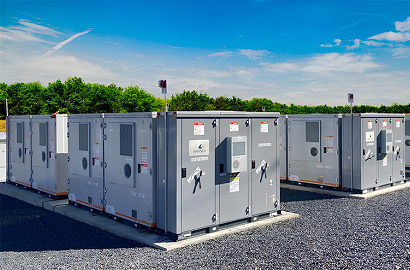Miteco promotes 45 innovative energy storage projects

The Ministry has earmarked 156 million euros for these and will increase storage capacity by 3,400 megawatt-hours.
The Ministry for Ecological Transition and the Demographic Challenge (Miteco) has approved a 156.4-million-euro aid package to promote 35 innovative stand-alone energy storage projects, and another ten thermal energy storage projects using different technologies. The aim is to thereby support the deployment of storage technologies that contribute to making the system more flexible and to guarantee the electricity supply.
The Institute for Energy Diversification and Saving (IDAE) has been the body in charge of selecting these projects, being financed with NextGenEU funds through the Strategic Project for Economic Recovery and Transformation for Renewable Energies, Renewable Hydrogen and Storage (PERTE ERHA), as part of the Recovery, Transformation and Resilience Plan (PRTR). Its commissioning will increase the current storage capacity by 779 megawatts and increase storage capacity by 3,400 megawatt-hours.
Commitment to storage
The PERTE-ERHA will mobilise an investment of over 16.3 billion euros, which will be allocated to developing technology, knowledge, industrial capacities and new business models in the field of clean energy. One of its objectives is the deployment of energy storage to offset the dependence on the sun and the wind in generating the main clean energies, and thus facilitate the transition to a renewable and decarbonised energy system.
To achieve this, Miteco itself approved the granting of another 100 million last July in aid to four reversible pumped hydroelectric energy storage projects. Most of the new projects being approved now are related to independent storage solutions using stand-alone batteries.
Details of approved projects
The 35 selected stand-alone storage projects use batteries that are equipped with electrochemical technology. When commissioned, they will contribute 690.2 megawatts of storage power and 2,820 megawatt-hours of storage capacity to the system. Fifteen of these projects will be developed in Asturias, funded with 60.8 million euros in aid. Five projects in the Canary Islands will receive 14.9 million euros, and the four projects in the Basque Country will receive 9.6 million euros. These are followed by Catalonia and Cantabria, with three proposals each, two in the Valencian Community and one each in the Balearic Islands, Andalusia and Galicia.
In financing line 2, dedicated to thermal energy storage, ten projects have been selected to receive 6.48 million euros in aid. Together they will provide 88.35 megawatts of storage power and 591.27 megawatt-hours of storage capacity. Several of these projects use molten salt and solid material technologies, which will add 23.5 megawatt-hours of capacity and 2.9 megawatts of storage power. Four of them will be implemented in Castile and León, three in Castile-La Mancha and the rest in the Basque Country, Madrid and Galicia.
Selection criteria
In addition to economic viability, the technical characteristics that will contribute to the dual objective of increasing storage capacity and providing stability to the grid were also taken into account during the selection process, in such a way as to guarantee the supply and safe operation of the system.
Other important factors in the selection process were job creation, contribution to the demographic challenge and fair transition, impact on the local and industrial value chain and other environmental aspects, gender equality, SME participation and level of innovation.
Photo: Miteco




